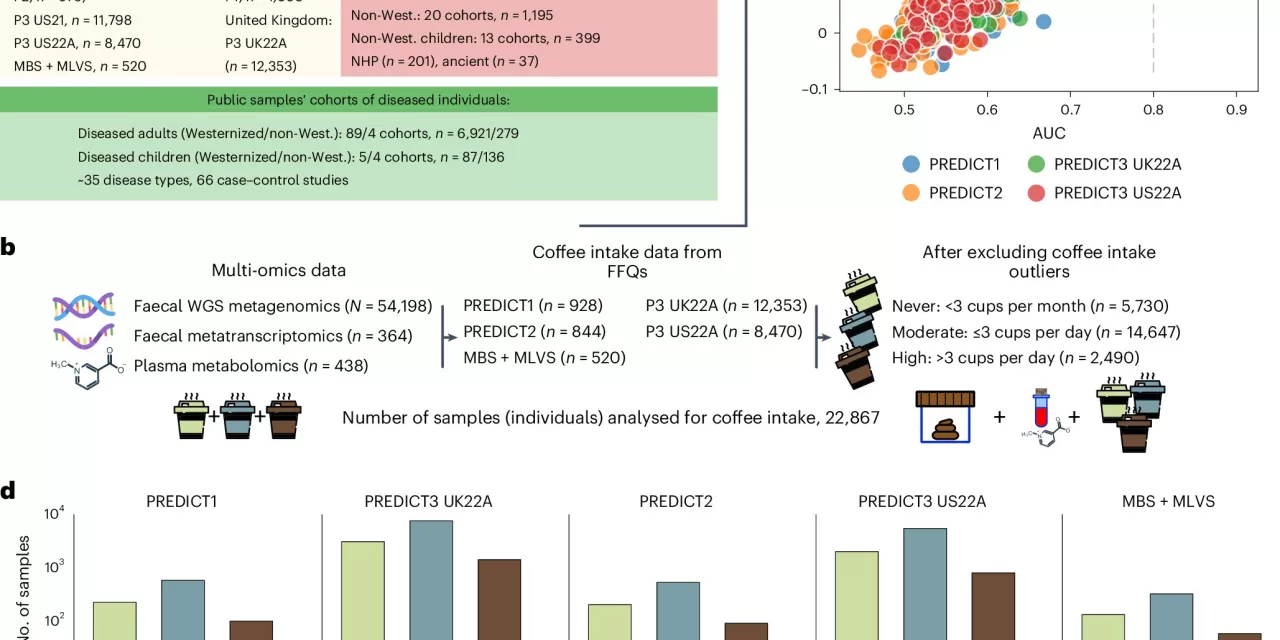A groundbreaking international study published in Nature Microbiology suggests that regular coffee consumption could significantly alter the composition of the gut microbiome. The research, conducted by a team of medical scientists, found that coffee drinkers exhibit significantly higher levels of a specific gut bacterium, Lawsonibacter asaccharolyticus, compared to non-coffee drinkers.
The Study and Its Scope
The research team analyzed stool and blood samples from nearly 77,000 individuals across the U.K. and the U.S. and in 211 global cohorts. By comparing microbiome data between coffee drinkers and non-drinkers, the study revealed that coffee drinkers had levels of L. asaccharolyticus up to eight times higher than those who abstain from the beverage. This pattern was consistent across diverse populations worldwide.
The study, led by Paolo Manghi and colleagues, underscores the potential for specific foods and beverages to influence the gut microbiome profoundly. The researchers selected coffee as their focus due to its widespread and consistent consumption patterns.
Implications for Health
Although the role of L. asaccharolyticus in human health remains unclear, researchers speculate that its increased prevalence among coffee drinkers could contribute to some of the health benefits commonly associated with coffee consumption. Past studies have linked coffee to improved metabolic health, reduced risk of certain diseases, and enhanced longevity.
“This research demonstrates how a single dietary choice can significantly shape our gut microbiome,” the authors noted. “It opens the door to more targeted studies on how individual foods and beverages influence human health.”
Expert Commentary
In a companion News & Views article, Nathan McNulty and Jeffrey Gordon of the Washington University School of Medicine highlighted the importance of these findings. They emphasized the growing recognition of the gut microbiome as a key player in overall health and disease prevention.
“This work underscores the need to better understand how specific dietary habits affect the microbial communities within us,” McNulty and Gordon wrote.
Future Research Directions
The team acknowledged that while the study identifies a strong correlation between coffee consumption and L. asaccharolyticus abundance, further research is necessary to determine the bacterium’s specific role in health outcomes.
The findings also raise broader questions about the potential to harness diet, including coffee, as a tool for modulating the gut microbiome to improve health.
Reference
The full study is available in Nature Microbiology:
- Paolo Manghi et al., “Coffee consumption is associated with intestinal Lawsonibacter asaccharolyticus abundance and prevalence across multiple cohorts.” DOI: 10.1038/s41564-024-01858-9
- Nathan P. McNulty et al., “Coffee habits help shape gut communities.” DOI: 10.1038/s41564-024-01869-6
This research highlights the intricate relationship between diet and gut health, suggesting that the daily cup of coffee may do more than just provide a morning pick-me-up.









